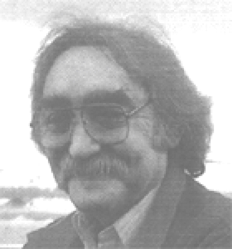Mathematics in the work of Rafael Soto

Jesus Rafael Soto ( 1923 -2006)
Jesus-Rafael Soto lived between Paris and Caracas until he died on January 14, 2005.
He was born in 1923 in Ciudad Bolivar, Venezuela. At age 27 he traveled to Paris and
was deeply influenced by the geometric-abstract constructive art of Mondrian and
Malevitch. Soto is considered one of the pioneers of kinetic art, a technique that seeks
to apply movement in the plastic arts.
With his work Metamorfosis, of 1954, introduced the optical movement in the painting.
In 1967 he carried out his environmental work, the first Penetrable, which requires the
viewer to "enter" into the work. All Soto's artistic trajectory is a research on visuality,
light, movement and vibration as sensorial and immaterial phenomena involving the
spectator.
![Soto sphere at the Jesús Soto Museum of Modern Art.
[url=https://ggbm.at/Zv2GNQfc]In the next Chapter we can see a model of this work. [/url]](https://beta.geogebra.org/resource/yAmbVE5s/dZXP7UOrQ0p1eyil/material-yAmbVE5s.png)
In an interview in "O Estado de São Paulo" newspaper in 2002, Soto analysed some
aspects of his work and art.
On the "absence of emotion" in kinetic art:
"I believe that mathematics is pure poetry. (...) if you do not have a poetic sense, can
not grasp very subtle, universal things, can not get to kinetic art. What are poets?
They are people who are looking for elements that are scattered and try to catch
them. (...)
The Soto´s Sphere at GAMeC - Galleria d'Arte Moderna e Contemporanea in Bergamo, 2006-10-13 at 2007-02-25.
In fact, my function is to take the material and convert it from a rigid element into a
vibratory element, leading to a possible conceptual and optical dematerialization.
There is very little calculation. I only work with calculations when I have to do big
things, involving architecture, because I can not go wrong. In the studio it is possible
to make mistakes and start over.
My interest was to teach people (...) who did not realize that space and time are
wonderful entities, to which we belong and that are full of possibilities, (...). My interest
is to awaken a little awareness that space is a full, elastic entity that not only envelops us.
I wanted to show that we are physically space / time. And how to arouse this interest?
It was necessary to invent things. It was not possible to do with the canvas, with the
painting. I am doing the same thing as the prehistoric man, who was seeking to make
the movement and then discovered how to make a horse, a bison; and in addition made
the best painting in the world.
- On the possible exhaustion of the language that used:
"The person uses the writing that suits him for this. You sit down and write in the same
twenty-odd letters that have the alphabet. Placing them up, down, beside, follows writing
and doing wonderful works, with the same letters. "